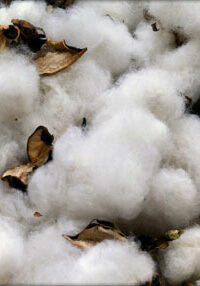
Colourants
Brief classification of colourants according to application type:
- Acid dyes
- Direct dyes
- Reactive dyes
- Vat dyes
- Sulphur dyes
- Disperse dyes
- Basic dyes
- Chrome dyes
- Azoic dyes
Cotton
Constituents, structure and properties. Hydrocellulose, oxycellulose. Action of acids and alkalis. Mercerization.
Water
Impurities, pH, purification, hardness and effluent treatments.
Detergents
Soap, anionic, cationic, amphoteric and nonionic.
Preparation
Singeing, desizing, scouring, mercerisation. Bleaching (hypochlorite, chlorite, peroxide), fluorescent brightening agents. Advantages and disadvantages of various bleaching agents.
Theory of Dyeing
Dyeing of cellulose with direct dyes.
Direct Dyes
Properties and application. Aftertreatment.
Sulphur Dyes
Application to yarn, knitted goods, woven fabrics. Pad, jig, pad-batch, continuous dyeing, pad-steam. Polyester/cellulosic blends. Effluent treatment. Fastness properties, common faults.
Vat Dyes
Types, reducing agents, vatting, batch dyeing. IN, IW and IK classes. Semi-pigmentation, pre-pigmentation, acid leuco and continuous methods. Loose stock, sliver, yarn (packages and hanks), woven, semicontinuous – continuous, knit goods, faulty dyeing, solubilised vats.
Azoic Dyes
History. Coupling components. Diazo components., Continuous and batch dyeing of stock, sliver, tow, hanks and knitted goods. Fastness properties.
Reactive Dyes
History and chemistry. Cold dyeing, hot dyeing types and reactivity. Package, winch, jets, semi-and fully-continuous sequences possible. Aftertreatments and fastness problems.
Pigments
Types and application methods.
Polyester/cellulosic Blends
Blends Dyeing procedures for polyester/cellulosic blends.
Colour Selection
Dyestuff selection versus colour range. Reasons for selecting a certain class of dye, eg fastness, hue and cost.
Finishing Sequences
Resin finishes for crease resistance. Special finishes for stain repellency, flame retardancy, waterproofing and softening.
Machinery
Machinery used in processing.
